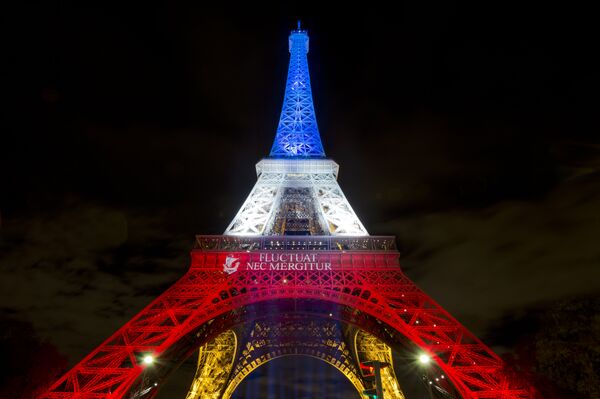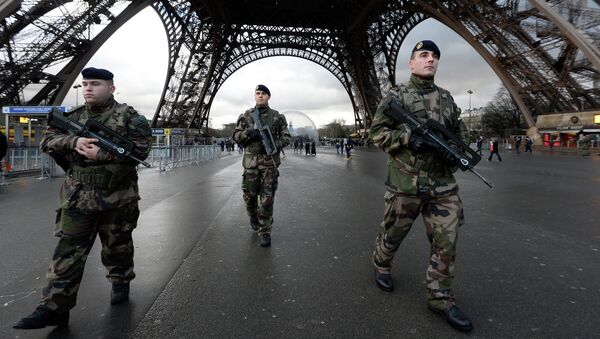According to a new report from Amnesty International, in 2016, the French authorities banned dozens of public assemblies using emergency powers and placed restrictions on hundreds of individuals to prevent them from exercising their right to freedom of assembly.
Macron must stop the misuse of anti-terrorism powers in #France & halt the spiral to a permanent state of emergency https://t.co/YZnVm7cdLw pic.twitter.com/HbklJ33nXR
— Salil Shetty (@SalilShetty) 31 May 2017
"Individuals not linked in any way to acts of terrorism are getting caught in the cross-hairs of the emergency measures. This report shows the disproportionate use of emergency powers to restrict the right to freedom of assembly in situations unrelated to any specific threat of attacks on the general population. Moreover, the report shows that French authorities often relied on unnecessarily resource-intensive strategies and used force disproportionately when policing public assemblies," Amnesty said.
Between 14 November 2015, when the French government declared a state of emergency, and 5 May 2017, prefects issued 155 measures banning public assemblies using the additional powers conferred on them by the state of emergency. On numerous occasions, they also banned or imposed wide-ranging restrictions on public assemblies by resorting to their ordinary powers.
155 protests banned, 639 individuals restricted: France under state of emergency. @amnesty https://t.co/vXkQ28eDBn pic.twitter.com/P22FNmesMD
— Gauri van Gulik (@GaurivanGulik) 31 May 2017
"There are concerns as to whether such broad and sweeping measures and the restrictions they imposed on the right to freedom of peaceful assembly were necessary and proportionate in pursuit of the legitimate aim of maintaining public order. More generally, Amnesty International is concerned by the use of emergency powers to impose restrictions on human rights which did not appear to be strictly required by the exigencies of the situation," the report said.
"The European Court of Human Rights (European Court) has on numerous occasions affirmed that the right to freedom of peaceful assembly covers meetings on public thoroughfares and in enclosed places or privately owned premises, as well as both static meetings and public processions. It is a right that can be exercised both by individual participants and by those organizing the assembly," Amnesty said.
Under French law, the police officials or mayors responsible for receiving notification of a public assembly can issue a decree banning a particular public assembly if they consider it is likely to disrupt public order.

According to Amnesty, under the state of emergency currently in force, prefects can ban public assemblies on vaguely formulated grounds. They can ban, for example, public assemblies in enclosed or privately owned venues (reunions) on the grounds that they are likely to "provoke or encourage disorder." They can also restrict the movement of persons in specific areas with the effect of preventing public assemblies.
Amnesty International is calling on the French authorities to use their powers to ban public assemblies only as a measure of last resort. They must ensure that any prohibition complies with the criteria of necessity and proportionality set out in international human rights law.


